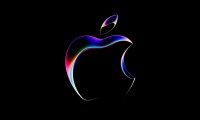
Now that we’re only a month and a half away from Apple’s annual Worldwide Developers Conference – the same event where the current OS X version (10.8) was launched last year – we keep hearing more and more about OS X 10.9. The new operating system reportedly uses the codename “Cabernet” within the company, and, according to 9to5mac’s unnamed sources, Apple has copied over a few iOS core features and added “power user” enhancements to the new operating system.
The first major enhancement is the addition of tabs and tags within Finder to make organizing and finding files and folders a lot easier. In 10.8 and previous OS X versions, you have to install third-party applications like TotalFinder and XtraFinder. However, OS X 10.9 (depending on its final set of features) will build the Web-browser-like feature right in.
Mac users who use multiple displays will be happy with the second improvement, which reportedly allows users to fire up two or more apps and view them fullscreen on different monitors. So far, you’re only able to use one fullscreen app per computer no matter how many displays you have.
A new Safari Web browser is also said to be coming. Safari will bring improvements that increase page loading times, which is something we can all get behind.
While it doesn’t seem like OS X 10.9 will be getting a totally new look, the new OS is rumored to come with a handful of user interface changes. One 9to5mac source also said that in addition to the aforementioned enhancements, Apple is also testing an OS X quick-app switcher similar to the one on iOS (the bar that appears when you double click an iPhone, iPad, or iPod’s home button). Whether the feature will make the cut for the final, ready-for-release copy of 10.9 is still to be determined.
These are just some of the newest reports on what we could see on Apple’s next operating system for computers. As we’ve previously reported, the OS could also come with a bunch of other features, including Siri and Apple Maps. Besides announcing OS X 10.9, Apple is also expected to launch iOS 7 during its 2013 Worldwide Developers Conference to be held on June 10 to 14 in San Francisco.
Editors' Recommendations
- This little-known feature is my favorite part of using a Mac and iPhone together
- Apple’s rumored larger iMac could ship with more powerful M2X processor
- Mac usage is growing rapidly, but iOS still outpaces it by about 10 times
- MacOS and iPadOS will never merge — and the M1 iPad Pro is proof
- Mac OS X is 20 years old today. Here’s why it was so revolutionary



